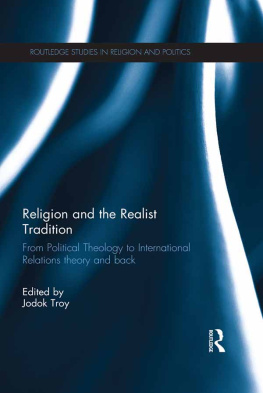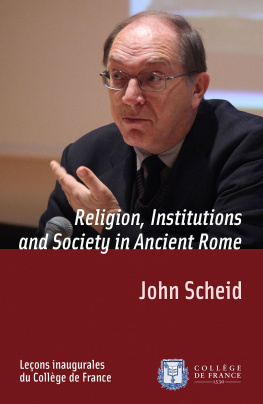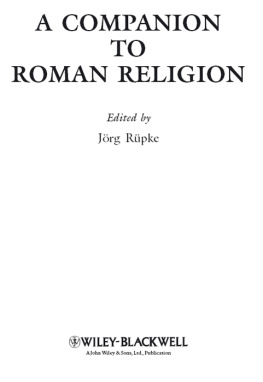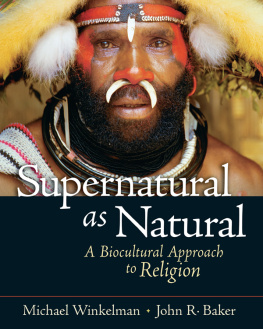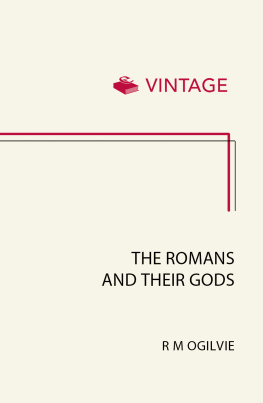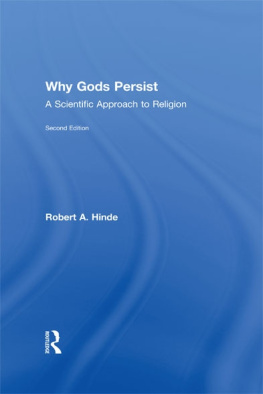The Gods, the State,
and the Individual
EMPIRE AND AFTER
Series Editor: Clifford Ando
A complete list of books in the series is available from the publisher.
THE GODS,
THE STATE,
AND THE
INDIVIDUAL

REFLECTIONS ON
CIVIC RELIGION
IN ROME
John Scheid
Translated and
with a foreword by
Clifford Ando

UNIVERSITY OF PENNSYLVANIA PRESS
PHILADELPHIA
English translation copyright 2016
University of Pennsylvania Press
Originally published as Les Dieux, ltat et lindividu: Rflexions sur la religion civique Rome 2013 ditions du Seuil.
All rights reserved. Except for brief quotations used for purposes of review or scholarly citation, none of this book may be reproduced in any form by any means without written permission from the publisher.
Published by
University of Pennsylvania Press
Philadelphia, Pennsylvania 19104-4112
www.upenn.edu/pennpress
Printed in the United States of America on acid-free paper
1 3 5 7 9 10 8 6 4 2
Library of Congress Cataloging-in-Publication Data
Scheid, John, author.
[Dieux, ltat et lindividu. English]
The gods, the state, and the individual : reflections on civic religion in Rome / John Scheid ; translated and with a foreword by Clifford Ando.
pages cm. (Empire and after)
Includes bibliographical references and index.
ISBN 978-0-8122-4766-4 (alk. paper)
1. Religion and stateRome. 2. CultsRome. 3. RomeReligion. I. Ando, Clifford, translator, author of foreword. II. Scheid, John. Dieux, ltat et lindividu. Translation of: III. Title. IV. Series: Empire and after.
BL805.S3413 2016
292.07dc23
2015016157
To the memory of Jean-Pierre Vernant
Non pas passer les universaux la rpe de lhistoire, mais faire passer lhistoire au fil dune pense qui refuse les universaux.
Michel Foucault
Contents

Translators Foreword

John Scheids The Gods, the State, and the Individual: Reflections on Civic Religion in Rome is an impassioned intervention in a contemporary debate in the study of ancient religion. It speaks for a method or, perhaps, a perspective, as well as a distinctive national tradition. In the book, Scheid himself contextualizes his work within a centurys history of scholarship on religion in the ancient world. This foreword offers an additional perspective on the contemporary context in which Scheid intervenes and explains choices made in the process of translation.
Roman religion has long presented a number of challenges to historians of religion in the Christian and post-Christian West. Among others, one might single out the nonexistence in classical Latin of any term that corresponds to English religion, and the similar absence of any vocabulary to discuss religious affiliation or acts of conversion that distinguish those phenomena from, say, acts of political belonging or changes in doctrinal persuasion in the study of philosophy. To these one might add Roman religions lack of a sacred text that (nominally) offered a totalizing portrait of the religions propositional content or foundational myth, as well as the Roman practice of describing relations with the divine using technical terms for social relations widely employed to discuss relations with other humans: pietas, whence English piety, describes dutiful respect toward ties of kinship above all, but also other social bonds; colere, whence Latin cultus and English cult, describes sustained acts of attention, respect, and cultivation toward things we cherish: social superiors, close relations, and the land whence one springs.
Building on a long tradition of scholarship, whose contours I trace below and in which he himself has played a leading role, Scheid confronts these challenges head-on. Proceeding with a profound respect for historical and philological detail, Scheid explores the functioning of a religious system tightly imbricated with other structures of social and political belonging. How shall we describe the situation of individuals vis--vis Roman religion, when the Romans themselves did not regard the individual as a primary unit of social analysis, freely making religious commitments that might emancipate or sunder oneself from other forms of social commitment? In addition, Scheid outlines and emphasizes the consequences of our accepting as historically primary features of Roman religion prominent in the sources (its emphasis on ritual action; its profound concern for the here-and-now), instead of seeking at Rome those features of Christian religious life that we would like to find, whose very lack then becomes at once an explanandum and the principal evidence for Roman religions deficiency as religion.
Scheid describes the emergence of what he alternatively terms a sociological or secular perspective on Greek and Roman religions as a hard-won struggle on the part of researchers to set aside a priori commitments, derived above all from Protestant Christianity, about what religion is and how individuals and communities relate to religions. In his view, nineteenth-and early twentieth-century historians of religion derived from Protestant theology and Romantic philosophy an understanding of religion as, in essence, an interiorized sense of individual dependence and awe before some unseen and transcendent divine. In that historiographic tradition, such feelings on the part of individuals have historically found collective expression in institutions and shared practices. For a multitude of reasons, individuals and cultures have often lost their way and become estranged from their own feelings and thus from the divine; religious institutions and practices are then hijacked by elites, who put themselves forward as expertsas priestsand exploit popular devotion to ritual and their own control over particular spaces, materials, and institutions of knowledge production to interpose themselves between individuals and the divine. Scheids work in this regard is part of a widespread and international tradition of self-critical reflection in the study of religion, and he is surely correct in the fundamentals of his diagnosis. An exemplary essay in the American branch of this tradition is Jonathan Z. Smiths On the Origin of Origins, the first chapter in Drudgery Divine.
Although the way was paved by a number of earlier, excellent booksincluding, as Scheid and many others in the field emphasize, the extraordinary work of Georg Wissowa, Religion und Kultus der Rmer and so forth.
That said, Romans wrote books on religious themes and reflected both discursively and in figurative art on their own religious practices, and they performed rituals, even if they almost never attributed the content of those rituals to some originary moment of divine revelation. The second feature of the new consensus relevant to this sketch is thus substantive in orientation. Across a variety of domains, scholars have sought to craft frameworks within which to understand the role of religious literatures and other forms of aestheticized cultural production at Rome, including avowedly literary forms like myth as well as philosophical theology and figurative art: were they merely personal reflections on the meaning of ritual performance, which was somehow primary? Or can they serve as indices to interpretive or ideological agendas at their moment of production? How, in sum, should they contribute to the writing of histories of Roman religion?
Next page


